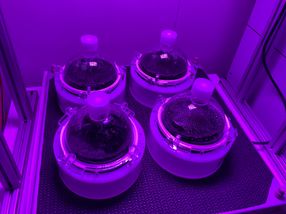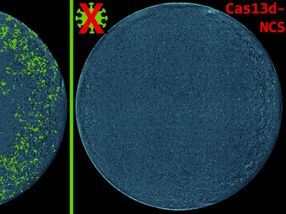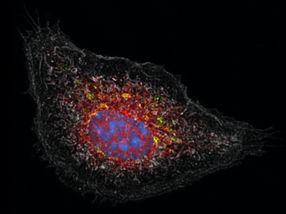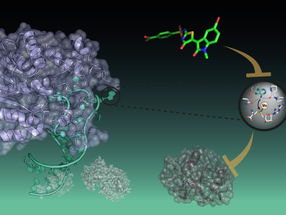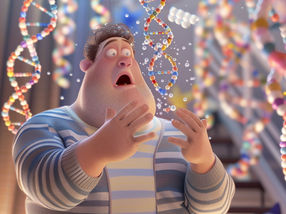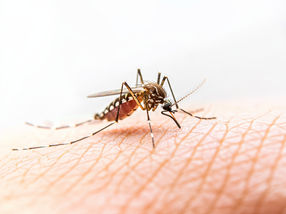Copying chromosome caps
Telomeres are a source of stress for a particular protein involved in copying DNA
DNA replication – the process of copying the DNA each time a cell divides – faces many sources of stress, such as DNA damage and sequences that are difficult to copy. A family of related enzymes, including SMARCAL1, responds to replication stress to stabilize, repair and restart stalled replication “forks.”
David Cortez , Ph.D., and colleagues have now demonstrated that SMARCAL1, but not two highly related enzymes, responds to the replication stress at telomeres, caps that protect the ends of chromosomes and form unusual DNA structures. The investigators showed that SMARCAL1’s activity at telomeres could be separated from its genome maintenance function in bulk chromosomal replication.
The study identifies the first endogenous source of replication stress that requires SMARCAL1 and defines functional differences in replication fork repair enzymes. This new role for SMARCAL1 could contribute to the symptoms of Schimke immune-osseous dysplasia (SIOD), a human disease caused by SMARCAL1 mutations.
Original publication
Other news from the department science

Get the life science industry in your inbox
From now on, don't miss a thing: Our newsletter for biotechnology, pharma and life sciences brings you up to date every Tuesday and Thursday. The latest industry news, product highlights and innovations - compact and easy to understand in your inbox. Researched by us so you don't have to.








